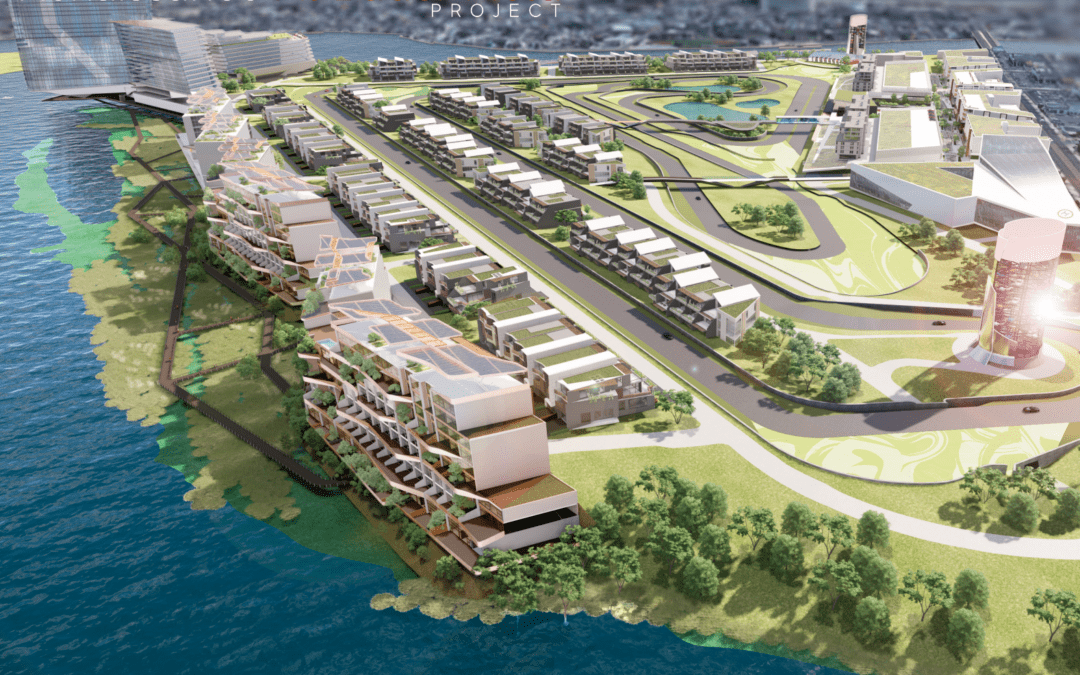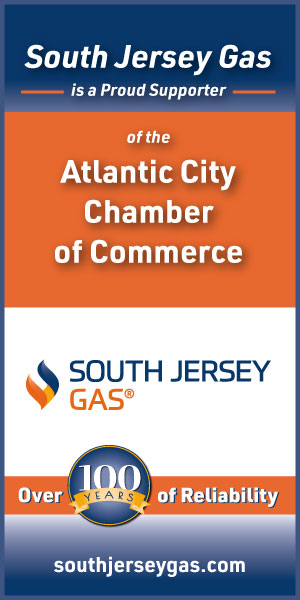The proposed project, a $2.7 billion dollar development, would be located at historic Bader Field in Atlantic City. The project would include a 2.44-mile Formula 1 specification only motor course surrounded by hundreds of condominiums and retail/commercial establishments. The construction would feature various emerging technologies and would be built to LEED Platinum specifications.
Michael Binder, representing developers DEEM Enterprises LLC. who propose Renaissance a Bader Field, spoke April 27 to members of the Greater Atlantic City Chamber of Commerce at Cooper Levenson law firm in Atlantic City to learn about the project.
DEEM hasn’t signed a deal yet, but Binder said the proposal has been endorsed by the City and Mayor Marty Small. “City Council would approve the purchase (after all terms and conditions are satisfied) of Bader
Field and, I was told, the Lieutenant Governor (Sheila Oliver) and State is also for it,” Binder said Developing the Renaissance project would mean elevating Bader Field 6 feet at one end and 35 feet at the other, he said.
Binder said the Army Corps of Engineers will dredge the back bays, hopefully, in June around Bader Field. DEEM wants to have spoils dumped on Bader Field and use them for sub level site work elevations after brownfield remediation is complete “We can use the spoils to build on once ammended,” Binder said. Renaissance is touted as a super “green” development project.
Binder described the project as a “proposed Net-zero carbon/, LEED Platinum community” with a design approach that’s rooted in resilient and sustainable materials. LEED certification means a development project has implemented comprehensive sustainability strategies. A microgrid would provide energy generation and distribution for Renaissance, which also would eventually use hydrogen, he said.
Binder declined to name the investors, but said they have money ready to begin development pending due diligence.
Construction would take place over 6 to 9 years, and create 1,200 to 1,500 permanent jobs, he said.
A rendering of the project shows approximately 10.8 MW of solar panels on condo roofs and other available roof space throughout the design.
The clientele for the Bader Field project would be a good fit for the gaming industry in Atlantic City but also the community at large. The project is inclusive in all aspects and would be transformative for the City. It is anticipated the existing tax burden would be lessened by nearly half. Binder said. Most of the customers purchasing condos would be auto enthusiasts who enjoy a destination type lifestyle featuring gaming, entertainment, quality restaurants, recreational boating and the Boardwalk and Ocean. Binder said.
The vehicles, many of which would run on electric power, would not create enough sound to bother neighbors along Albany Avenue or throughout Chelsea, according to Binder. “There won’t be discernable noise from the motor course. There’s more noise on Albany Avenue right now,” he said.
The project would use a network operations center or (NOC), allowing IT teams to manage and monitor the development. For instance, Binder said the NOC would turn on lighting, energy systems, manage security, and all motor course operations, as well as allow for power to be mitigated when the residences are unoccupied.
The motor course and related functions were designed by the World’s foremost designer from Spain, Binder said.
A Formula 1 specification track, featuring the latest in safety criteria, in the middle of the project would also allow for the highly skilled driver with a high-performance vehicle like a Lamborghini or Ferrari to drive them at high but safe speeds.
“You can’t come off the street and just drive your own car around, but rather you would need to be a member or guest of a member and be certified by professional instructors. Safety is paramount!’ Binder said.
The more than 140-acre Bader Field was among the nation’s first airports. It opened in 1910 and was the first municipal airport in the nation. The city owns Bader Field, which closed in 2006.
Binder says this is not the first time he’s worked with City officials on a project. Binder’s company operates electronic advertising signs along the Atlantic City Boardwalk. He also has worked in Atlantic City since 1976 and various projects.


